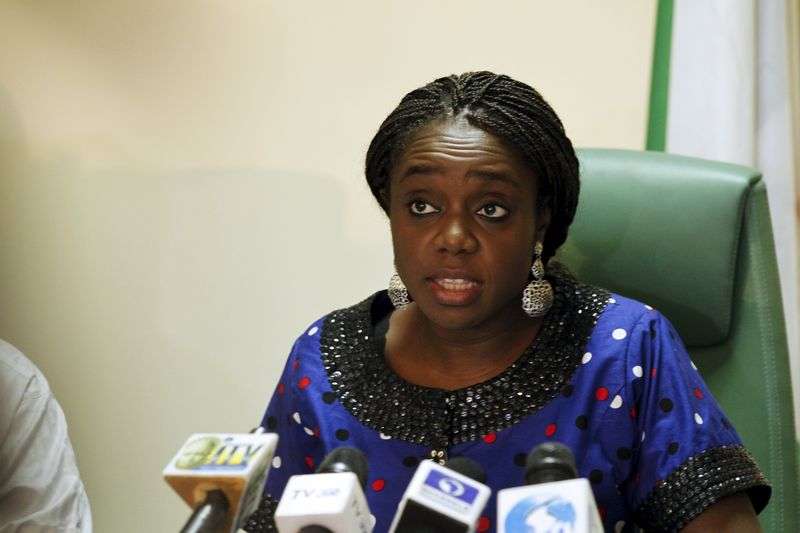- FG,States, LGs Share N2.27tn in Five Months
The Federation Accounts Allocation Committee shared a total sum of N2.27tn among the three tiers of government in the first five months of this year.
An analysis of the FAAC distribution by our correspondent in Abuja on Friday also showed that the N2.27tn distributed between January and May this year represented an increase of N600bn over the N1.69tn, which the committee allocated to the federal, state and local governments in the corresponding period of 2016.
The committee, headed by the Minister of Finance, Mrs. Kemi Adeosun, is made up of commissioners of finance from the 36 states of the federation; the Accountant General of the Federation, Mr. Ahmed Idris; and representatives of the Nigerian National Petroleum Corporation.
Others are representatives of the Federal Inland Revenue Service; Nigeria Custom Service; Revenue Mobilisation, Allocation and Fiscal Commission; as well as the Central Bank of Nigeria.
The Federation Account is currently being managed on a legal framework that allows funds to be shared under three major components of statutory allocation, Value Added Tax distribution and allocation made under the derivation principle.
Under statutory allocation, the Federal Government gets 52.68 per cent of the revenue shared; states, 26.72 per cent; and local governments, 20.60 per cent.
The framework also provides that VAT revenue be shared thus: Federal Government, 15 per cent; states, 50 per cent; and local governments, 35 per cent.
Similarly, extra allocation is given to the nine oil producing states based on the 13 per cent derivation formula.
A breakdown of the N2.27tn shared in the first five months of this year showed that in January, the three tiers of government got N430.16bn, out of which the Federal Government took N168bn; states, N114.28bn; and local governments, N85.4bn.
In February, the federation generated N514bn, out of which the Federal Government’s share was N200.6bn; the states, N128.4bn; and local governments, N96.52bn.
However, in March, revenue generation dipped to N466.9bn. From this amount, the Federal Government got N180.5bn; state governments, N116.5bn; and local governments, N87.5bn.
The allocation declined further by N52.07bn from N467.8bn in March 2017 to N415.73bn in April, with the Federal Government receiving N163.89bn; states N117.59bn; while the local government councils got N87.77bn.
In the month of May, the committee shared the sum of N462.4bn among the three tiers of government as statutory allocation, with the Federal Government receiving N147.7bn; states, N74.9bn; and local government councils, N57.8bn.
Speaking on the allocations to the three tiers of government, some finance and economic experts said that while the country had been badly hit by the decline in oil production and revenue as a result of the activities of militants in the Niger Delta, there were a lot of untapped resources at the states, which could be developed for economic prosperity.
Those who spoke to our correspondent on the issue were the Head of Banking and Finance Department, Nasarawa State University, Keffi, Uche Uwaleke; a former Managing Director of Unity Bank Plc, Mr. Rislanudeen Muhammed; and a former Managing Director, Nigeria Deposit Insurance Corporation, Mr. Ganiyu Ogunleye.
Uwaleke, an Associate Professor of Finance, told our correspondent that diversification of the economy would help address the socioeconomic challenges facing the country, adding that once the federating units were given the powers to control their resources, it would help promote competition.
He said with competition, the federating units would come up with innovative ways of stimulating their respective economies.
Uwaleke said, “Restructuring is the panacea for many of the socioeconomic challenges facing the country. This much came to the fore in the last national conference put together by the previous administration.
“The seemingly endless crises in the Niger Delta region will substantially abate if the country is restructured in a way that allows greater control of resources by the federating units. The present economic recession is a direct consequence of the drastic fall in government revenue, which has been blamed in part on militancy in the Niger Delta.”
In his comments, Muhammed said there was a need to come up with initiatives that would make all the states compete for economic development.
He stated, “Nigeria has huge economic potential outside the oil sector, which are largely untapped due to the so called Dutch Disease that has for years made us lazy and always relying on mono product commodity called oil as a source of income, notwithstanding the fact that oil constitutes only 10 per cent of our Gross Domestic Product.
“Economic restructuring will make all the states compete for development and uplifting the lives of their people. There are potential for growth in non-oil export in most states, and virtually all the states have one form of economic competitive advantage or the other.”
Ogunleye, on his part, said there was a need to diversify the economy, as it held the key to the economic development of the people.
He stated, “Restructuring is a necessity and I think that is what people have been advocating over the years, but the challenge is that it is either there is no serious commitment to it or the political will to implement it is lacking.
“Otherwise, when you talk about diversification, it’s almost the same thing as restructuring the economy. Over the years, we relied on oil revenue and now we can appreciate the risks of relying on one source of revenue.
“We are not a manufacturing country and so most of the things we use in this country are imported, so certainly there is a need to restructure the country in such a way that we can develop manufacturing capacity.”


 Naira3 weeks ago
Naira3 weeks ago
 News4 weeks ago
News4 weeks ago
 Naira4 weeks ago
Naira4 weeks ago
 Jobs3 weeks ago
Jobs3 weeks ago
 Naira3 weeks ago
Naira3 weeks ago
 Travel3 weeks ago
Travel3 weeks ago
 Naira3 weeks ago
Naira3 weeks ago
 Investment4 weeks ago
Investment4 weeks ago





























